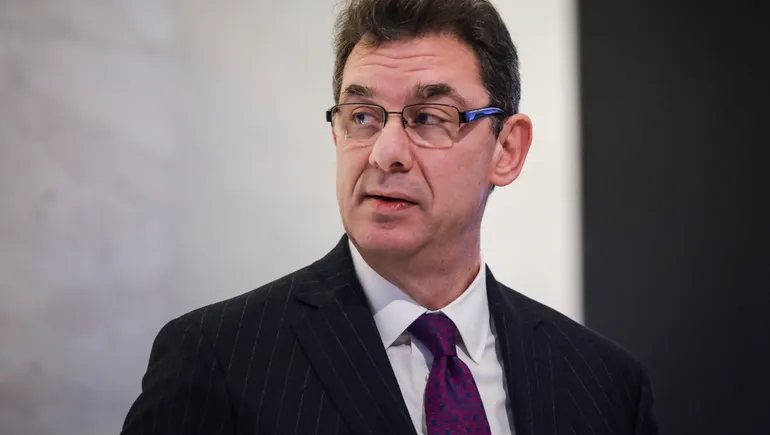Pfizer’s COVID vax and antiviral sales have crashed. Will the ‘big bet’ on Seagen even the keel?

With the enormous pandemic windfall in Pfizer’s rearview mirror, the pharma giant is on a mission to prove to investors the company has plenty going for it besides shots and antivirals, particularly in the cancer arena.
After closing the acquisition of cancer drugmaker Seagen in December — a $43 billion deal — Pfizer is all in on its oncology future, and to instill confidence, CEO Albert Bourla has set the bar at $10 billion in acquired sales revenue by 2030.
Through the focus on cancer, Bourla is looking to right the Pfizer ship now that sales of the COVID-19 products that once blasted the company into the stratosphere have fallen back to earth. On this week’s earnings call with investors, the CEO offered insight into how the pharma giant could regain a growth trajectory.
“We closed the Seagen acquisition in the current regulatory environment. Being able to close such a large acquisition demonstrates our ability to successfully engage with regulatory bodies.”

With the FTC cracking down on pharma deals to prevent anti-competitive behavior, it makes sense that a CEO like Bourla would tout Pfizer’s ability to close an acquisition as big as the Seagen deal. Pfizer came through the regulatory agency’s antitrust period without major consequence unlike companies hitting road bumps like Amgen, which reached an agreement with the FTC in September over its $27.8 billion deal to buy Horizon Therapeutics.
With the addition of Seagen’s antibody-drug conjugate pipeline and four FDA-approved cancer drugs, Pfizer is poised to become one of the biggest oncology names in the industry. Bourla also reiterated the estimate that Seagen’s products would contribute $10 billion in additional revenue by 2030. For the full year 2023, Pfizer pulled in revenue of $58.5 billion.
The Seagen deal marked Pfizer’s post-COVID strategy after sales of the vaccine Comirnaty and the antiviral treatment Paxlovid together brought in $12.5 billion in 2023, a massive — albeit expected — drop from $57 billion in 2022. Into 2024, the company has guided toward only $8 billion in revenue from both Comirnaty and Paxlovid.
“Everybody wants ADCs. Our big bet was on this technology, so it looks like there is an overall consensus among investors, companies and analysts that this is a technology that will deliver a lot.”

Albert Bourla
CEO, Pfizer
The promise of antibody-drug conjugates is bright on the industry’s radar and companies that specialize in the technology have become a hot commodity. Pfizer’s Seagen purchase was the largest of the recent M&A transactions, but others are getting in on the action, as well.
AbbVie announced last November it was putting forth $10 billion to buy ADC maker ImmunoGen, while other pharma giants jumping into the ADC pool include Bristol Myers Squibb, Eli Lilly, GSK, Merck & Co., AstraZeneca and more.
“We have defined our five key priorities that will keep us focused, and I repeat again, this will be a year of execution.”

Albert Bourla
CEO, Pfizer
Investors will watch Pfizer closely this year given how disappointing 2023 was for the company, which faced its first quarterly loss since 2019. To cut costs by as much as $4 billion, Pfizer has closed manufacturing facilities and laid off workers domestically and internationally on the production side.
Bourla dubbed 2024 a “year of execution” prior to the earnings call and illustrated further what the executive priorities would look like in the near term. The five focus areas include oncology leadership, pipeline progress, drug launch success, cost-cutting and making the company stock appealing to shareholders, Bourla said.
Source link
#Pfizers #COVID #vax #antiviral #sales #crashed #big #bet #Seagen #keel